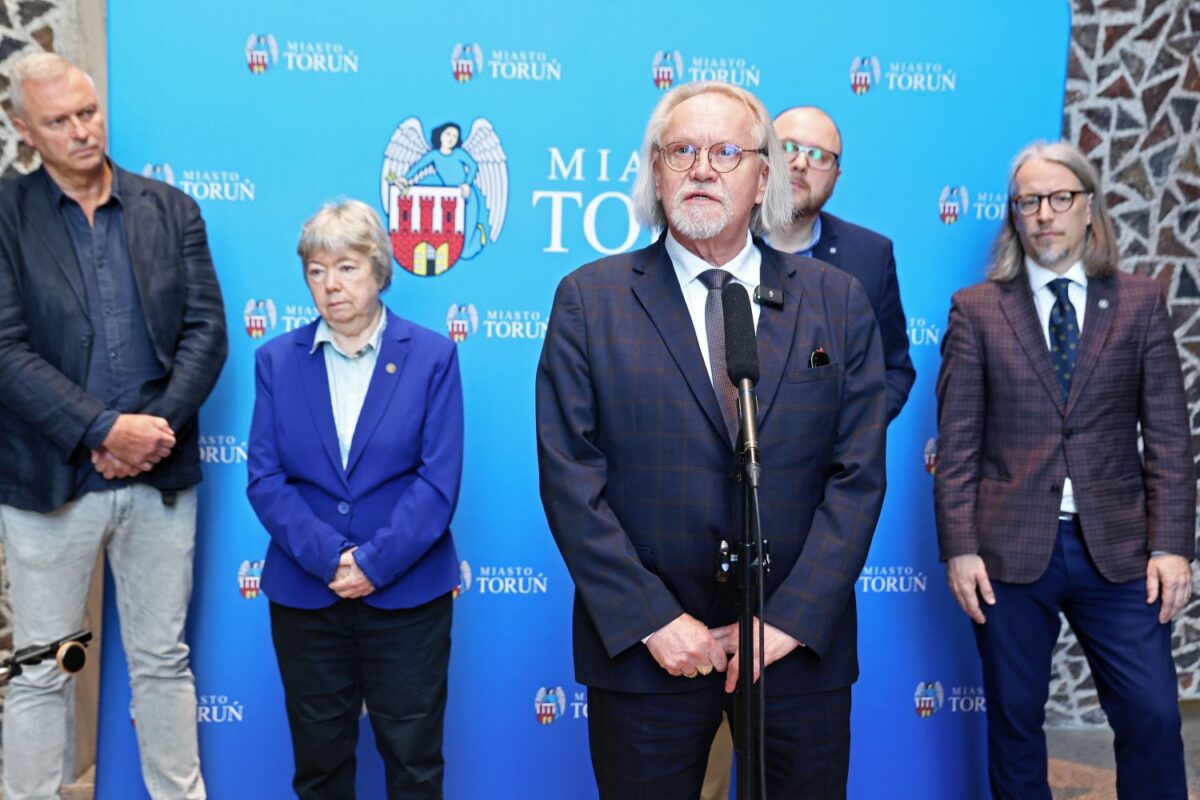The authorities of the Nicolaus Copernicus University (NCU) and the city of Toruń, where the university is located, have signed an agreement on cooperation, thus strengthening the existing relationship. The cooperation concerns, among other things, the development of urban space, archaeological research, the organisation of events, promotional and artistic activities and a diagnosis of social needs.
‘The university has in its name not only the fact that its patron is Nicolaus Copernicus, but also that it is located in Toruń. It is difficult to imagine Toruń without the university, and the university without Toruń. We must realise that, if we look at the number of people employed at our university, we are the largest institution in the city. In addition, the university has 12,000 students, who come here after their holidays and energise the city’ said Prof. dr habil. Andrzej Tretyn, NCU Rector, during a press conference devoted to the signing of the agreement.
Thanks to the contract, NCU scientists together with officials will diagnose urban space, cooperate in research, including archaeological or social studies, as well as in the artistic dimension. Such cooperation will also concern career development – NCU students will have the opportunity to take internships in city offices and companies. As the Mayor of Toruń, Paweł Gulewski, explained during the conference ‘we now have a formal framework for this cooperation, we have an agreement that creates something like a consortium between the Nicolaus Copernicus University and the city.’
One of the ongoing research projects concerns the development of a wild area in one of the districts. The public consultation will be supplemented by biologists’ opinion, as this area is of high natural value. ‘Perhaps Toruń will become a pioneer in the possibility of introducing wildlife into the city,’ says Professor Maria Lewicka, Head of the Department of Social and Environmental Psychology. Another concerns the archaeological research carried out on the Vistula boulevard. ‘Cultural heritage management policy should be integrated with cultural policy, education policy, environmental policy, planning and urban development’ said Prof. dr habil. Chudziak from the Institute of Archeology.
Sociologists also intend to periodically check the needs of residents and respond to their expectations in terms of quality of life, also in cooperation with the Centre for Social Services that operates in Toruń. ‘I consider this to be an extremely important challenge in the context of modernising the city’s policies and tailoring services to meet the needs and aspirations of citizens,’ says dr habil. Arkadiusz Karwacki, NCU Prof. from the Department of Quality of Life Research and Applied Sociology.
It is worth mentioning that in the Young Universities for the Future of Europe alliance, NCU is responsible for the area of Civic Engagement, which is why, for several years now, residents have been able to make use of numerous Help Desks and obtain free consultations in many areas. Answers are prepared by our students and supervised by experienced academics.
‘We are an innovative city and an innovative university,’ summarised dr habil. Adam Kola, NCU Prof., Vice-Rector for Research. ‘We deal with what in the world literature is called civic knowledge, that is, knowledge in which ordinary citizens participate and create. We want this innovation in collaboration with the city to resonate clearly.’
.
Photocredit: © Andrzej Romański










